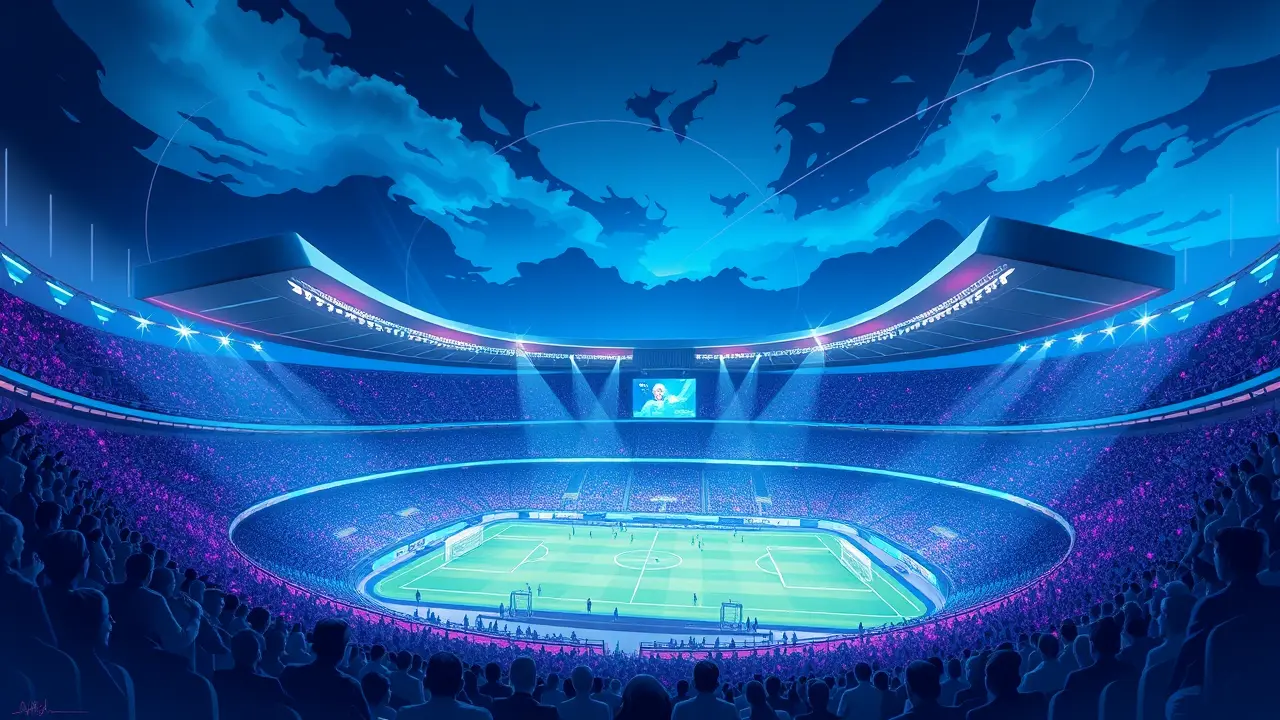
SportathleticsOlympic Games
Hong Kong's Kai Tak Sports Park fully booked until 2027.
JA
Jack Turner
23 hours ago7 min read
The roar of a future crowd is already echoing through Hong Kong's colossal Kai Tak Sports Park, a HK$30 billion (US$3. 86 billion) statement of intent that has slammed into the operational mainstream with the force of a Kevin De Bruyne strike, its calendar fully booked with world-class events stretching all the way to 2027.Secretary for Culture, Sports and Tourism Rosanna Law Shuk-pui’s declaration that the complex is in an “operationally sound phase” is the understatement of the season; this isn't just a venue opening, it's a strategic masterclass in urban regeneration and soft power projection, transforming the historic site of the old Kai Tak Airport into a 28-hectare sporting citadel designed to put Hong Kong firmly on the global map alongside legacy hubs like London's Wembley or Singapore's National Stadium. The sheer velocity of the booking schedule—a testament to aggressive, forward-thinking management—suggests a pipeline of international football friendlies, rugby sevens tournaments, and potentially even ATP tennis events, creating a relentless drumbeat of world-class action that will fuel the local economy with tourism and broadcast revenue, much like how Barcelona’s Camp Nou becomes the pulsating heart of the city on match days.This explosive demand inevitably casts a long shadow over the aging Hong Kong Stadium in So Kon Po, whose main pitch function is now under review, a move akin to a legendary veteran midfielder being gently phased out for a dynamic, all-action youngster; the proposed repurposing of its ancillary facilities into office space for sports associations is a pragmatic, if unglamorous, play, converting underutilized concrete into administrative engine rooms that could streamline the development of homegrown talent, ensuring the buzz from Kai Tak translates into a stronger grassroots pipeline. The financials are as staggering as a last-minute winning goal—this HK$30 billion investment isn't just about concrete and seats, it's a high-stakes wager on Hong Kong's post-pandemic revival and its enduring status as Asia's World City, a direct competitor to venues in Tokyo and Doha for hosting rights to continental championships and perhaps even segments of a future FIFA World Cup, leveraging its superior transport links and harbour-front location.The project's success, however, will be measured not just in sold-out seats but in its legacy, its ability to inspire a generation of Hong Kongers in the way the '92 Dream Team inspired global basketball fandom, creating a virtuous cycle where elite spectacle fuels participation and produces a local hero who can one day walk out onto that hallowed Kai Tak turf to the adulation of a capacity home crowd. The real game has only just begun, and the world is watching.
#lead focus news
#Kai Tak Sports Park
#Hong Kong Stadium
#facility upgrades
#sports infrastructure
#bookings
#government announcement
Stay Informed. Act Smarter.
Get weekly highlights, major headlines, and expert insights — then put your knowledge to work in our live prediction markets.
© 2025 Outpoll Service LTD. All rights reserved.